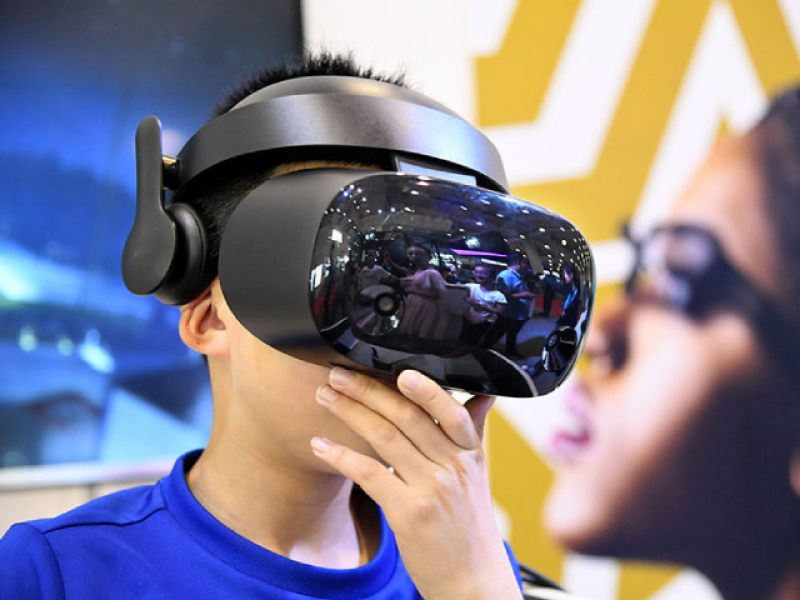
China's communist government did not spare the metaverse and will now use it as a training ground for cadets' allegiance to the regime.
The Chinese Communist Party (CCP) is determined to establish a communist education school using virtual reality to get top party officials into the technology. The Chinese virtual reality firm Mengke VR said that the CCP will use the metaverse to indoctrinate people into communism by conducting history lectures and courses, hosting meetings and virtual events, and allowing people to discover and explore virtual exhibits.
According to the Daily Star UK, Beijing's metaverse will feature courses such as those titled "The Great New Era - Major Achievements of the Party and the Country Since the 18th National Congress of the Communist Party of China" and "The Code of Leadership of the Communist Party of China." The newly launched metaverse is being used by CCP's top cadet training school called the Chinese Academy of Governance.
State-sponsored media outlet the South China Morning Post reported that according to a spokesperson for Mengke VR, the company "supports party-building work in a flexible and powerful way." The spokesperson explained that typical VR party building "becomes rather boring," which is why in their metaverse, users are able to move around and communicate using audio and 3D avatar virtual bodies while listening to narrators who discuss "current hot topics and knowledge." Not the Bee called it a "marketing opportunity" that the CCP took.
But this is not the first time the CCP took on using the metaverse to indoctrinate people into communism. In 2018, Chinese authorities reportedly used VR to "reinforce cadres' allegiance" to the CCP by requiring them to answer questions after watching a documentary about communist heroes.
This new VR project comes amidst Beijing's crackdown on video game companies, with harsher new laws governing both game content and the amount of time children and young citizens are allowed to play such games.
According to The Register, the CCP has "achieved strong VR adoption" and has also invested in VR theme parks. In fact, Chinese companies such as Tencent, Alibaba and ByteDance are all looking for a slice in the VR pie, which market Morgan Stanley predicts may be worth about $8 trillion.
Moreover, The Diplomat reported that Chinese players are already placing their bids on virtual worlds just as fast as companies in Silicon Valley. Up to 16,000 metaverse-related trademark applications have been filed so far. In the meantime, Alibaba has been investing in augmented and virtual reality companies since 2016, while Baidu launched its VR world XiRang. ByteDance has also shown its interest in VR by acquiring the VR headset maker Pico.
As for Chinese consumers, they appear to be very open to VR. In fact, the metaverse social app Zheli overtook the dominant social networking app called WeChat as the most downloaded app in the Chinese App Store. It especially attracted young users as WeChat became a centralized platform for both business and pleasure. Younger people yearned for a separate space for free expression, which the metaverse could offer. Similarly, the widely popular metaverse social networking app called Soul also offers users to connect through common hobbies and interests. All of these apps, of course, are not without Chinese government control.


















